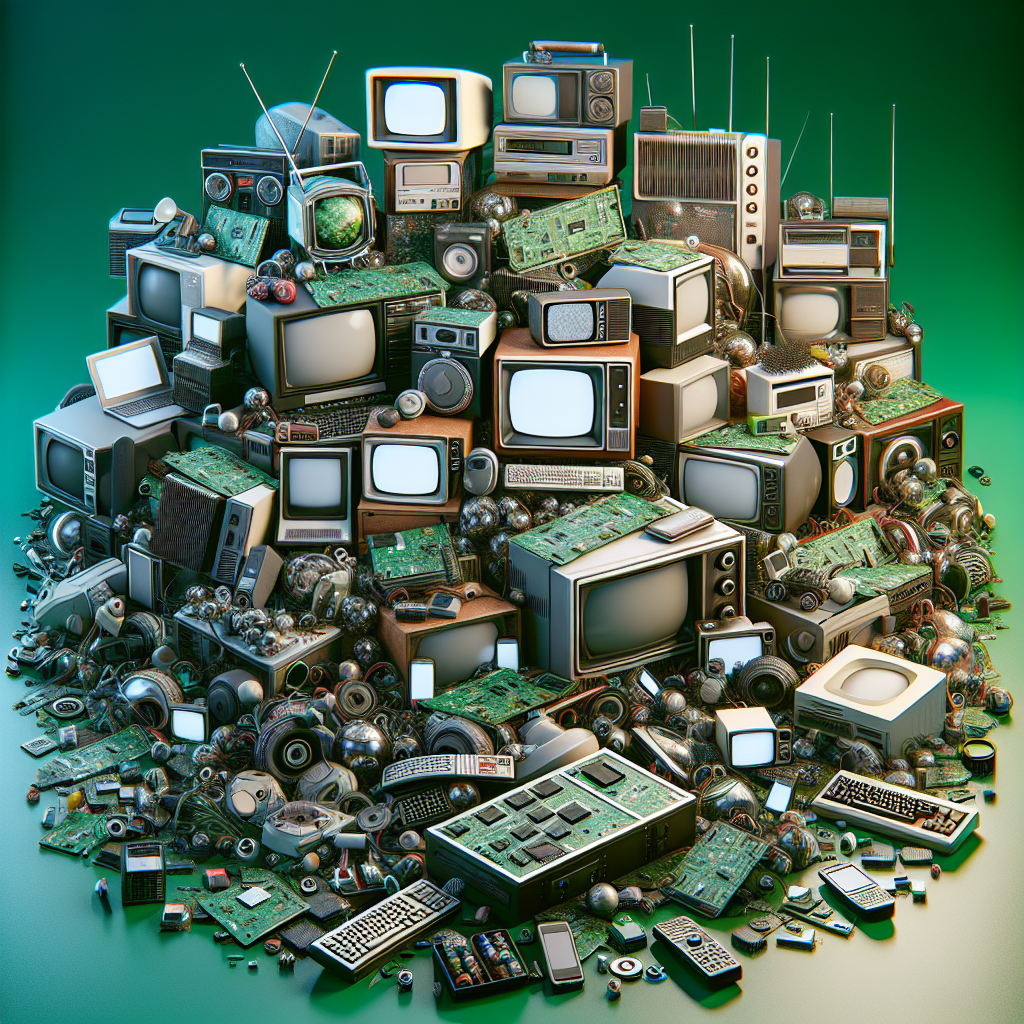Blog Ecobraz Eigre

Electronic Devices That Changed the World and Generated Tons of Waste
Impact of Electronic Devices on the Modern World
Since the popularization of electronic devices, such equipment has transformed the ways of communication, work, and entertainment globally. Computers, smartphones, tablets, and other devices are essential in daily routines, directly contributing to substantial technological and economic advancements. However, the rapid life cycle and planned obsolescence generate a huge amount of electronic waste, whose proper management becomes a significant environmental and social challenge.
Main Electronic Devices and Their Role in Waste Generation
The accelerated development of devices such as personal computers, smartphones, flat-screen televisions, and portable audio equipment has led to growing demand and subsequent large-scale disposal.
- Computers: They have evolved rapidly, both in capacity and complexity, rendering old models obsolete, which are discarded en masse.
- Smartphones: The high volume of consumption associated with short technology update cycles significantly contributes to the increase in electronic waste.
- Televisions: The transition from tube models to liquid crystal and plasma screens has resulted in frequent replacements, with equipment often being discarded.
Electronic Waste: Challenges and Regulation in Brazil
In the Brazilian context, Law No. 12,305/2010, which establishes the National Solid Waste Policy (PNRS), sets guidelines for the proper management of electronic waste. According to the legislation, consumers, retailers, and manufacturers must implement reverse logistics systems to ensure appropriate disposal and recycling of these materials.
Additionally, the National Information System on Solid Waste Management (SINIR) provides updated data and monitoring, helping coordinate necessary actions to minimize environmental impacts.
Proper Collection and Disposal of Electronic Waste
Efficiency in the collection of electronic waste is essential to prevent contamination of soil, water, and air by hazardous substances found in devices, such as heavy metals and chemical components. For this critical step, the use of specialized collection services that ensure correct segregation is recommended, protecting the environment and public health. To schedule the collection of electronic waste promptly and safely, access here.
Secure Sanitization of Devices and Storage Media
Beyond disposal, sanitization of equipment such as hard drives (HDs) and other storage media is essential to guarantee information security, following information security recommendations. Specific procedures aim to irreversibly erase data, protecting against sensitive information leakage.
For specialized services in sanitizing electronic HDs and media with technical guarantees, use the platform available at electronic HD sanitization.
Final Considerations
The evolution of electronic devices has profoundly impacted daily life and the global economy but has also generated a significant increase in the volume of solid electronic waste. The management of this waste must follow strict regulations established by Brazilian legislation, aiming to reduce environmental impact and ensure information security. The adoption of effective collection, recycling, and sanitization practices is fundamental for the sector's sustainability.

Deixe um comentário
O seu endereço de e-mail não será publicado. Campos obrigatórios são marcados com *